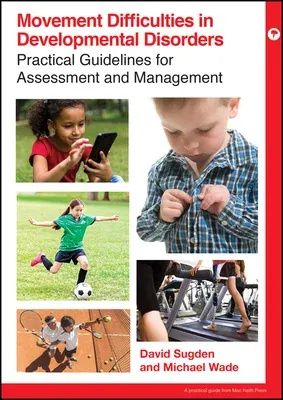David Sugden
(Author)Movement Difficulties in Developmental DisordersPaperback, 31 December 2019

Qty
1
Turbo
Ships in 2 - 3 days
In Stock
Free Delivery
Cash on Delivery
15 Days
Free Returns
Secure Checkout

Part of Series
Mac Keith Press Practical Guides
Part of Series
Practical Guides from Mac Keith Press
Print Length
336 pages
Language
English
Publisher
Mac Keith Press
Date Published
31 Dec 2019
ISBN-10
1909962945
ISBN-13
9781909962941
Description
Product Details
Authors:
Book Format:
Paperback
Country of Origin:
GB
Date Published:
31 December 2019
Dimensions:
23.88 x
17.02 x
1.02 cm
ISBN-10:
1909962945
ISBN-13:
9781909962941
Language:
English
Pages:
336
Publisher:
Weight:
476.27 gm